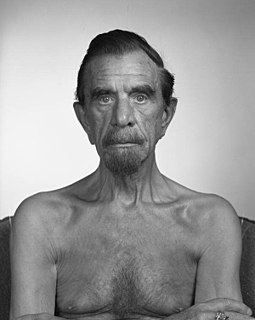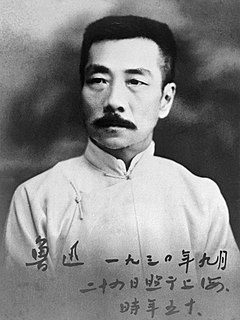A Quote by Robert Breault
Sometimes, to pursue a new idea, the artist must forfeit his deposit on an old idea.
Related Quotes
A genuine invention in the realm of ideas must first emerge as an abstruse and even partial concept? At first blusha new idea appearstobe verycloseto insanity because to be new it must reverse important basic beliefs and assumptions which, in turn, have been institutionalized and are administered by one or another kind of priesthood with a vested interest in an old idea.
New York has influenced me a lot in terms of my own independence. I'm really struck by the idea of authenticity, and I think New York embodies that idea, even though people are like, 'I miss the old New York.' But at its core, it has this natural, authentic energy. L.A. lacks that idea; it's painted over.
The vitality of thought is in adventure. Idea's won't keep. Something must be done about them. When the idea is new, its custodians have fervour, live for it, and, if need be, die for it. Their inheritors receive the idea, perhaps now strong and successful, but without inheriting the fervour; so the idea settles down to a comfortable middle age, turns senile, and dies.
Whoever lives for poetry must read everything. How often has the light of a new idea sprung for me from a simple brochure! When one allows himself to be animated by new images, he discovers iridescence in the images of old books. Poetic ages unite in a living memory. The new age awakens the old. The old age comes to live again in the new. Poetry is never as unified as when it diversifies.
The central idea of the Eastern Fathers was that of theosis, the divinization of all creatures, the transfiguration of the world, the idea of the cosmos and not the idea of personal salvation...Only later Christian consciousness began to value the idea of hell more than the idea of the transfiguration and divinization of the world...The Kingdom of God is the transfiguration of the world, the universal resurrection, a new heaven and a new earth.
When I taught art, I was always asked, 'How do you know you're an artist? What makes you an artist?' And to me, it's like breathing. You don't question if you breathe; you have to breathe. So if you wake up in the morning, and you have to realize an idea, and there's another idea, and another, maybe you are really an artist.
The artist has some internal experience that produces a poem, a painting, a piece of music. Spectators submit themselves to the work, which generates an inner experience for them. But historically it's a very new, not to mention vulgar, idea that the spectator's experience should be identical to, or even have anything to do with, the artist's. That idea comes from an over-industrialized society which has learned to distrust magic.





































